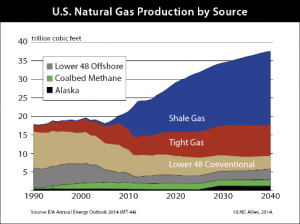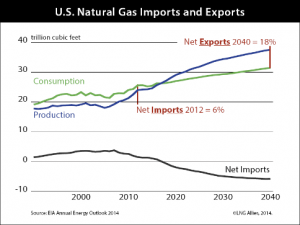
Beyond Rhetoric: How The U.S. Can Help Enhance European Energy Security
Podcast: Play in new window | Download
Subscribe: Apple Podcasts | RSS
On Wednesday July 30th, 2014, ASP conducted an event on energy policies: “Beyond Rhetoric: How The U.S. Can Help Enhance European Energy Security” in conjunction with “LNG Allies”, an association that advocates for expanded relationship with America’s allies on natural gas. The event discussed concrete steps that the US can take now and in the future to bolster Europe’s energy security. A large amount of the discussion focused on the use of American exports of liquefied natural gas (LNG) as a new geopolitical tool.
The event’s panel included: Robin Dunnigan, Acting Deputy Secretary for Energy Diplomacy in the Department of State’s Bureau of Energy Resource; Žygimantas Pavilionis, the Ambassador of Lithuania to the US; and Charles McConnell, Executive Director of the Energy and Environment Initiative at Rice University and former Assistant Secretary of Energy. The discussion was moderated by ASP’s Senior Fellow for Energy and Climate – Andrew Holland.
The event began with introductions from both our CEO, Brigadier General Stephen A. Cheney, USMC (Ret.), and Holland.
Dunnigan believes the US will likely be a net exporter of natural gas within two years given the recent shale boom. She touched on how providing Europe with natural gas is hard to execute as the Department of Energy gives licenses to private companies that represent nations in the export/import process, making it a more difficult procedure. She noted that Ukraine needs to strike some sort of deal with Russia’s Gazprom before the winter because there is nothing that can make up the shortfall before then. She discussed the July 29, 2014 roll-out of sanctions on Russia by both the US government and the EU, some of which specifically targeted the energy sector.
Ambassador Pavilionis called for increased infrastructure in Lithuania, implying that there should be less energy reliance in regards to Russian gas. The ambassador called for US government support in creating that infrastructure. He made the clear case that Lithuania was a country inspired by American ideals of freedom and open markets – and called for the US to respect those values by opening its markets to exports of LNG.
McConnell added information and context regarding the energy relationship that currently exists between Europe, Russia, and America. He suggested that national security concerns about energy means that countries shouldn’t simply leave LNG exports to the markets: countries and large energy firms should make direct investments in American export terminals because this will foster a closer relationship and get more terminals built. Energy is a strategic commodity, not simply a commercial.
All the panelists discussed how this all takes time, but that events in Eastern Europe are moving faster than the political schedule here in the U.S. Additionally, the money put into these projects (billions), adds to the length of the process. The panel pointed out the fact that energy insecure countries should not rely on one source of energy (LNG), but have a varied energy portfolio for added security.
The extensive Q&A section discussed the importance of the Export-Import Bank for financing energy projects in Eastern Europe, comments from Cheniere (one of the companies that will be exporting LNG) that their predicted LNG capacity was all “sold out”, and a discussion about the Southern Corridor for bringing gas to Europe from Azerbaijan and Turkmenistan through Turkey. Holland finished by saying that LNG relationships between America and European nations should not just be a commercial one, but a strategic one.
For more on ASP’s work on energy security; see:
1. ASP Briefing Note: The Ukraine Crisis and the Geopolitics of Energy
2. WHITE PAPER: America’s Energy Choices – 2014
3. PERSPECTIVE: Five Choices on Energy that We Need to Make
4. PERSPECTIVE: The U.S. Tight Oil Boom: Geopolitical Winner or Long-Term Distraction?
Included below are the video and photos for the event:
Featured Image Courtesy of: TruckPR/flickr.com








[…] The Complex Relations That Bind Europe, Russia, and America […]
[…] perspective on the Russia-Ukraine crisis is instructive. At a recent conference hosted by American Security Project, Lithuanian Ambassador to the United States, Zygimantas Pavilionis, expressed grave concern about […]
[…] Beyond Rhetoric: How the U.S. Can Help Enhance European Energy Security […]